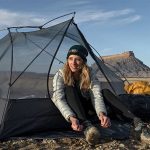While many political analysts are comparing the 109th congress to the infamous “Do Nothing” congress during Trumans Presidency, both OIA and SIA were able to push several important bills through at the last minute. Both organizations have been quite active in recent months, trying remove excessive tariffs that can boost wholesale prices and eliminate quotas that slow the supply chain.
At the same time, OIA has been fighting to maintain funding for the Land and Water Conservation Fund, which had tentatively been zeroed out by the current administration. However, as one of its final acts, this Congress approved legislation that for the first-time provides a permanent source of funding for local parks and trails. The legislation establishes a direct source of funding for the Stateside LWCF that would not be subject to the appropriations process.
Stateside LWCF has underwritten the development of more than 40,000 state and local park and recreation projects in 98% of the counties in the United States. Senator Lamar Alexander, a Republican form Tenn., and Senator Ken Salazar, a Democrat from Colo. Secured the bill. Funds directed to state parks and trails would be small in the initial years, but could reach more than $125 million a year by 2017 and as much as $215 million a year after that.
OIA also achieved two major trade victories. The House and Senate passed trade legislation containing several OIA-crafted provisions that would eliminate import tariffs on certain kinds of athletic footwear, primarily waterproof-breathable boots and shoes. Previously, these items were lumped in with protective and industrial footwear, which currently has extensive domestic production capabilities. Most athletic footwear, like Gore-tex or eVent trail running shoes, cannot be manufactured in the U.S. Under OIAs suggestion, these types of footwear were separated into two different categories, significantly reducing the import duties on waterproof-breathable footwear.
“The OIA trade program is a relatively new Government Affairs initiative. Were very pleased that in our first year we have been able to secure such great gains for so many outdoor industry companies,” said OIA president, Frank Hugelmeyer. “Trade directly affects the continued success and growth of the outdoor industry, and OIA will continue its focus on trade issues in the coming year ”
The legislation would also grant permanent normalized trade relations for Vietnam. Both were top priorities for this first year of the OIA trade program. In total, twelve footwear tariff relief measures will apply to certain footwear that incorporates a laminated or coated textile fabric. Ten eliminate tariff rates on these products, some as high as 37.5%, and two would reduce tariff rates to 12.8 and 15.2%.
The SIA, with the help of its law firm of record, DLA Piper US LLP, also saw success in its work to reduce tariffs and duties on imported ski and snowboard footwear. SIA worked with members of Congress to extend duty breaks for snowboard boots, which were set to expire this year, until the end of 2009. Additionally, the duty was further reduced from 4% to 0%. Products included in this duty reduction are snowboard boots, ski boots, and cross country ski footwear.
This duty reduction means that all snow sports footwear may now be imported into the United States duty-free. SIA estimates that its members who manufacture snow sports footwear overseas will save hundreds of thousands of dollars on duties. Last year, importers spent $235,000 on duties for snowboard boots, ski boots, and cross country ski footwear with textile uppers.













